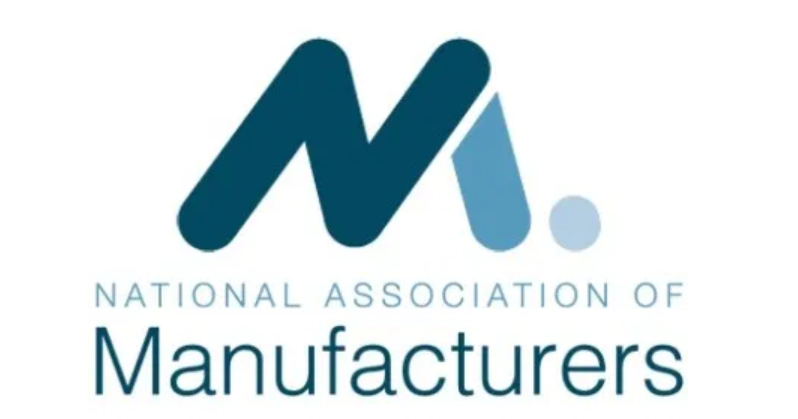Motorcycle Industry Association
Category: Trade Association
The Motorcycle Industry Association (MCIA) “represents and oversees the interests of the motorcycle, scooter and Powered Light Vehicle (PLV) industry”, according to its website.
The MCIA has said it is supportive of efforts to improve air quality and argued motorcycles have an important role to play in doing so. However, it has also been critical of London’s Ultra Low Emission Zone (ULEZ), arguing that motorcycles should be subject to lower charges.
The organisation’s members represent “approximately 85% of the supply side of the industry” in the UK. It lobbies government departments and agencies in order to “represent Members and protect the industry’s interests” and runs campaigns on issues such as motorcycle theft.
The MCIA provides a number of services to its members, such as market intelligence and legal advice, as well as various events.
Its board of directors is composed of representatives from motorcycle manufacturers and retailers, such as Suzuki, Harley-Davidson and Yamaha, and its members include Auto Trader, BMW, Honda and the British Vehicle Rental and Leasing Association (BVRLA).
The MCIA is also a member of the European Association of Motorcycle Manufacturers (ACEM) and a corporate member of the British Motorcyclists Federation.
Funding
The MCIA had turnover of £4.4 million and net assets of £2.7 million in 2018-19, according to its annual report.
Air Pollution Lobbying
The MCIA states on its website that “as technology moves away from the internal combustion engine, electrification and other powertrain technologies will see transport take on a new dimension”.
In a 2019 promotional video, the MCIA listed “the need to reduce congestion” and “to improve air quality” among the changes “we must embrace in the next decade”. It argued a shift to Powered Light Vehicles, which include motorcycles and micro cars, would lead to emissions falling significantly.
Tweeting about the video, the MCIA said there was an “alternative to single-occupancy cars and low-utilisation vans clogging city streets”.
In response to the Draft New London Plan, outlining the Mayor’s development strategy for the city, the MCIA argued in 2018 that Powered Two-Wheelers (PTW) such as motorcycles and scooters should be “recognised along with walking, cycling and public transport as a low-pollution and congestion-busting alternative to car and van use”.
It said that because “motorcycles contribute extremely little to the amount of air pollution produced by transport”, any low emission zones that impose charges on older vehicles should offer incentives for people and businesses to upgrade to cleaner models, such as a diesel scrappage scheme.
The MCIA has also called for more government support for the sale of electric motorcycles.
While the organisation has said motorcycles should be subject to charging under London’s Ultra Low Emission Zone (ULEZ), it argues this should be “proportional”.
The MCIA told DeSmog there were also many motorcycles liable for charges despite their emissions being below the minimum Euro 3 standard and that motorcyclists were having to prove this through expensive tests. It said it had offered to help Transport for London (TfL) “categorise the affected PTWs by researching their stated emissions and requested a temporary suspension while this work was done” but this was not forthcoming.
It also said it was “especially unjust” that low-income motorcyclists, most likely to own a vehicle of this age, would have to pay the charge.
A TfL spokesperson said the issue of some owners needing to test their vehicles was common to all vehicle types and highlighted the Mayor of London’s scrappage scheme to help “low income and disabled Londoners” scrap their motorcycles for cleaner vehicles.
In 2019, the MCIA’s PR Manager wrote a column for The Telegraph arguing that Transport for London should have “shown a little more foresight with their charging structure” by distinguishing between motorcycles and other types of traffic.
The same year, it said it was “extremely disappointing” that motorcycles would be subject to the same charges as “single-occupancy 4x4s from the same era” and argued that motorcyclists were being “erroneously vilified”. It called for the charge to be suspended and said it was “quite incredible that TFL and the Mayor continue to discriminate against the users of motorcycles and scooters and to ignore their benefits”.
When contacted by DeSmog, the MCIA said it was against the “disproportionate nature of the scheme, not the scheme itself”.
In a 2018 article, the MCIA was quoted as saying that Transport for London was “waging a war on motorised transport” and failing to distinguish between motorcycles and other forms of traffic. Its CEO claimed that Mayor of London Sadiq Khan “clearly has his own agenda around motorcycles and scooters”.
It has also claimed the scheme is “operating in a legal grey area” because of confusion over the compliance of different types of vehicles.
Responding to a 2017-18 consultation on expanding the ULEZ, the MCIA said the proposals were not proportionate for motorcycles due to the small amount of emissions it says they produce, though when contacted by DeSmog, it said its opposition to the geographical expansion had been “erroneously reported”. According to a summary of responses to the consultation, it was “broadly supportive” of renewing the motorcycle fleet with less polluting vehicles and argued that any charges under the scheme should go towards a scrappage scheme.
A TfL spokesperson told DeSmog that while overall emissions from motorcycles were comparatively small, individual motorcycles can produce significant amounts of pollution.
In a 2016 article, an MCIA representative criticised the London ULEZ claiming that “motorcycles contribute to reducing the air pollution” and that the £12.50 per day charge for non-compliant motorcycles was “not a fair deal” because not everyone could afford to “run out and buy a new bike”.
In response to an initial consultation on the ULEZ in 2014-15, the MCIA called for a lower charge for motorcycles.
Key Arguments in Order of Prominence
- Increasing use of motorcycles contributes to a reduction in air pollution
- Motorcycles should be recognised along with walking, cycling and public transport as a way of improving air quality and cutting congestion
- The ULEZ discriminates against motorcycles by imposing the same level of charge as for much larger vehicles
- The ULEZ charge for motorcycles should be lower
- ULEZ charges impact low-income motorcyclists the most
- Revenue from any emissions charges should go towards a vehicle scrappage scheme
- Motorcycles contribute very little to emissions compared to other forms of transport
- Not every motorcyclist can afford to buy a bike that complies with the ULEZ
Areas Active
London: The MCIA has criticised charges for motorcycles under the city’s Ultra Low Emission Zone as disproportionate and called for lower charges.






